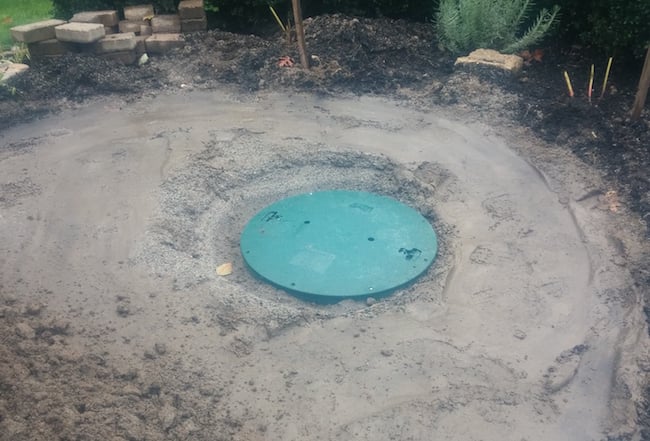
Whether you’re trying to figure out what kind of septic tank to install with your septic system or if you’re troubleshooting your current tank, it’s important to know a little bit about the peculiarities of each tank. Like any other installation, each option has distinct advantages and disadvantages. Know what these relative pros and cons can help ensure you make the best decision when installing, repairing, or replacing your septic tank.
Keep in mind that these problems are usually the result of poor septic care or installation. The point is to periodically have your tank inspected to avoid or identity these problems before they become disasters. The price of an inspection can vary depending on many factors. Consult with a professional to get an accurate septic tank inspection cost.
- Concrete Septic Tank—Concrete septic tanks are susceptible to cracking or even separation. Usually quite durable for several decades, these cracks can occur earlier when a low quality concrete mix was used or the septic system hasn’t been properly maintained. These cracks will allow effluence (waste) to seep out of the concrete septic tank and/or allow groundwater to seep in. Either case is bad. Blockage can cause the system to back up. Runoff is dangerous but also won’t be detected by a standard dye test. Unless a concrete septic tank is manually inspected the problem may not be detected until it’s too late and serious problems have arisen.
- Steel Septic Tank—Steel septic tanks are the least durable and least popular tank option. Designed to last no more than 20-25 years, they can be susceptible to rust even before that. Steel top covers can rust through and cause an unsuspecting person to fall into the tank. These covers can be replaced without replacing the entire tank. If you’re buying a house or living in one that had a pre-existing steel septic tank, manually inspecting this steel cover is not necessarily a good indication of the general condition of your tank. As with any septic tank, keep close attention to the baffles (entry and exit points) as they tend to corrode first.
- Fiberglass/Plastic Septic Tank—Plastic septic tanks are largely impervious to the rusting and cracking of steel and concrete septic tanks. Still, they have their own potential problems that should be watched for. Low effluent level can be a sign that a plug at the bottom of the tank has become dislodged. Even if the effluent level is normal during pumping, any plugs should still be manually inspected after the pumping. Sometimes the act of septic tank pumping is enough to dislodge a plug.
- While plastic septic tanks are more resistant to the natural chemical processes of a septic system, its lighter weight makes it more susceptible to structural damage. Careful installation is needed to ensure the tank isn’t damaged. The ground above the tank should be carefully noted. Don’t drive any vehicles over the tank. The lighter can also cause the tank to shift in the ground during periods of wet soil. A plastic septic tank can rise out of the ground breaking pipes along the way.
- Aerobic Septic Tank—Aerobic septic tanks use the aid of oxygen to increase the decomposition of the effluent. They also require electricity. Most often, aerobic septic tanks are used to replace failed septic systems. They can sometimes also reduce the required area for their drain field. Aerobic septic tanks typically cost two or three times as much but their high efficiency can save money from the reclaimed area in the drain field and from a prolonged life. The ability of an aerobic septic tank has little to do with durability. An aerobic septic system requires more frequent and more extensive maintenance. Its more complex system of decomposition increases the chances something will go wrong. Yet, if the system is maintained its efficiency will keep your effluent in check almost indefinitely.
- Important Warning: Be extremely careful around open or exposed septic tanks. Falling into a septic tank will often cause lethal asphyxiation. Even leaning over a septic tank can cause you to collapse.
Our True Cost Report pulls homeowner data for small and large capacity septic system costs. Consult the guide while budgeting for your installation project.
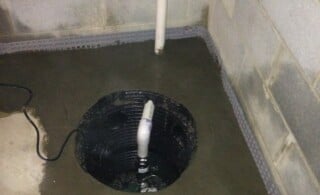 Sump Pump Odors – How to Detect & Eliminate Issues
Sump Pump Odors – How to Detect & Eliminate Issues 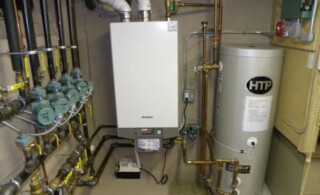 How Indirect Water Heaters Save You Money
How Indirect Water Heaters Save You Money  Removing Bathroom Fixtures When Remodeling
Removing Bathroom Fixtures When Remodeling 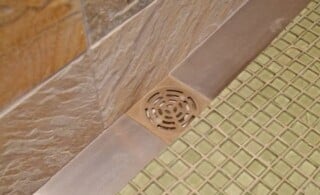 Clogged Drains
Clogged Drains 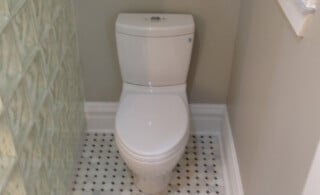 Dual Flush Toilets
Dual Flush Toilets 

Can newer power assisted flushing toilets be used with septic systems?